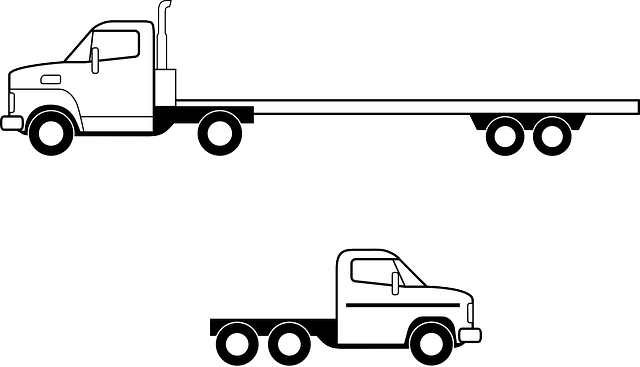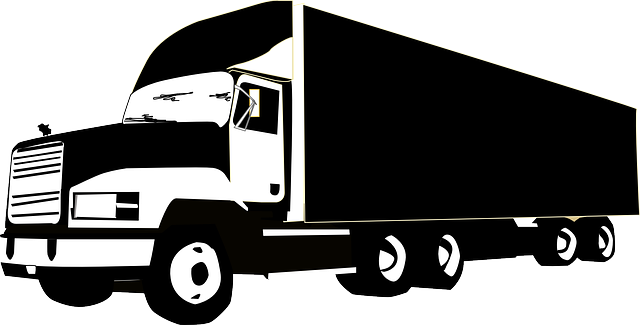It's no secret that all commercial vehicles and trucks in Georgia are required to get licensed and insured by an insurance provider in the state. So, commercial owner-operators should look for the best coverage from top insurance companies with best coverage first.
However, there's more to a commercial vehicle insurance policy for box trucks than meets the eye. For instance, some coverage options aren't required by commercial insurance, for commercial box trucks*, but they can prove helpful. In this article, we'll lay them out for you so that you can choose the right commercial box truck insurance coverage limits yourself.

What Are the Commercial Truck Insurance Requirements?
Simply put, truck owners are required to get a commercial auto insurance, owner operator, commercial box truck insurance or primary liability commercial box truck insurance, policy, and that coverage pertains to the following:
Bodily Injury Liability
This physical damage insurance would come in handy if a driver were to cause an accident and someone else got injured, as the driver may be legally responsible for the damages. So, trucking and hired auto liability insurance that covers the damage's costs. Not to mention, cheap box truck insurance, it backs cheap box truck insurance, the driver up with some legal defense in case of the other party filing a lawsuit.
And if we're talking numbers, the coverage should be at least $25,000/50,000. The first value is the highest cost your auto insurance company can give the other party to cover the medical expenses of their bodily injury. As for the second, it's the minimum value paid to several individuals if the accident had multiple people injured.
Property Damage Liability
That coverage is in case your accident causes any damage to properties, whether that be commercial driver's license, another vehicle, house, fence, or structure.
With primary liability coverage, you can have truck insurance quote for covering the damage's costs for other individuals injured third parties' vehicles. This truck insurance quote type pays to have such property repaired or replaced. As for the minimum coverage needed box a truck insurance quote, here, it's $25,000.
Tip: We'd highly recommend that truck drivers don't settle for the minimum needed insurance. Instead, it'd be wise to increase the coverage amount to cover the actual cost of injuries and property damage. This way, they wouldn't have to pay extra money.

Additional Types of Commercial Truck Insurance Offered by Insurance Companies
Now that we've established the necessary full truck insurance coverage and legal fees for a trucking company, let's delve into the optional insurance policies. Again, these aren't legal requirements for hire truckers, but can come in handy in multiple scenarios.
Collision:
When the vehicle of a box truck driver collides with another object or vehicle, this causes physical damage, which requires coverage. Your regular liability insurance agent or coverage box truck insurance may barely be enough to cover the other party's damage. So, this insurance takes care of yours as well.
Cargo:
Motor and transportation truckers' cargo insurance acts as compensation for box truck drivers for damaged or lost cargo in transportation. Trucking and cargo insurance and companies can pay a trucking business or box truck driver for the stolen or damaged freight it hauls.
Bobtail:
Bobtail insurance is a truck insurance policy targeted towards any truck or tractor with no trailers.

Comprehensive:
Also known as the physical damage coverage without collision coverage, this is when the insurance company covers damage because of a truck accident that doesn't involve collisions, such as hail and theft, vandalism, fire, falling objects, hitting animals while driving, natural disasters, and more.
Non-Trucking Liability:
A truck driver may have accidents outside traditional hauling or work hours, causing damage to a property or a personal injury. In that case, other transportation truckers say, insurance companies and private carriers can step in with the needed non-trucking liability insurance.
Uninsured/Underinsured Motorist Injury:
Other motorists or truck drivers involved in the accident may have inadequate auto insurance or none at all. This specific insurance fills in for the other party's auto insurance, paying for the medical bills of professional drivers and their passengers and covering the truck and other properties' damage.
Non-Owned Trailers Damage and Liability:
This insurance is helpful if the driver, motor truck insurance, carrier rental insurance, or trucking company doesn't own the attached trailers to the motor carrier or truck.

What Is the Average Cost of Commercial Truck Insurance?
First, let us establish that we're referencing any truck that drives in Georgia because trucks that cross state lines are a different matter. Furthermore, this truck should weigh over 10,000 pounds. If that's the case, owner-operators may pay $8,500 to $14,000 on average every year.
In addition, the average commercial box truck insurance cost is $750,000 or more in coverage if box truck business insurance and it's hauling non-hazardous freight. And Georgia's minimum insurance for liability coverages for box trucks is $100,000 for a person and $300,000 for an accident. In addition to high risk drivers, commercial box trucks, that carry over 12 passengers require high insurance costs. We're talking no less than $500,000.
Also, if you haul oil products in your business, we'd recommend that you have your truck insurance cost $1000,000 in your truck insurance cost. Finally, if your company requires that your commercial auto truck insurance policy you haul hazardous materials (Hazmat), you're looking at a minimum commercial auto policy of $5,000,000 in coverage.

Do Truckers Need General Liability Insurance?
Yes, truckers generally need General Liability Insurance. This type of insurance is essential for most businesses, including those in the trucking industry.
General Liability Insurance typically covers claims related to bodily injuries, property damage caused by your operations, and advertising injuries. It is important to note that this coverage is different from Auto Liability Insurance, which is mandatory for truckers in many jurisdictions and covers damages or injuries caused by accidents while operating the vehicle.
For truckers, General Liability Insurance can also cover medical expenses for incidents that happen off the road or outside of the truck itself. For example, if a customer visits your office or dispatch center and gets injured, your General Liability Insurance could potentially cover their medical expenses.
While the requirements can vary from one place to another and depend on the specifics of your business, having General Liability Insurance is generally considered good business practice. It is always advised to consult with a knowledgeable insurance professional who understands the unique needs and risks associated with the trucking industry to determine the appropriate level and types of insurance coverage.

Final Thoughts
All in all, an owner-operator single box truck' insurance policy can help pay for the repairs of other structures and any injury sustained by the other party. But if you want to secure the assets of box truck and your business, meeting the minimum commercial and box truck insurance cost of requirements in Georgia is far from enough. You don't want a highway crash to take its toll on your business.
To elaborate, the bare minimum won't cut it if the commercial straight truck itself is robbed, burnt, or driven for personal use and crashed. For all these potential accidents and more, additional comprehensive coverage really is the way to make the straight truck of trucks go.

FAQs
Q1: What are the minimum insurance requirements for commercial trucks in Georgia?
A1: In Georgia, commercial trucks must have a minimum liability insurance coverage of $750,000 for vehicles that weigh over 10,001 pounds and transport non-hazardous goods. If the truck is carrying hazardous substances, the minimum liability coverage amount increases to $1,000,000, and it rises to $5,000,000 if the truck is transporting hazardous substances in a volume greater than 3,500 gallons.
Q2: What is the penalty for not maintaining proper insurance for commercial trucks in Georgia?
A2: Failure to maintain the proper insurance coverage for commercial trucks in Georgia can result in severe penalties, including fines, the suspension of the vehicle registration, and potentially the revocation of the motor carrier's operating authority.
Q3: How does the insurance requirement differ based on gross vehicle weight and on the weight of the commercial truck?
A3: Insurance requirements for commercial trucks in Georgia vary depending on the weight of the vehicle. For vehicles that weigh 10,000 pounds or less, the minimum coverage requirement is $300,000. For vehicles that weigh more than 10,001 pounds, the minimum coverage requirement is $750,000 if they are transporting non-hazardous materials, but it increases if they are carrying hazardous substances.
Q4: How is the coverage amount decided if a commercial truck is transporting hazardous materials?
A4: The coverage amount for a commercial truck transporting hazardous materials in Georgia is determined by the type and volume of hazardous substances being transported. The minimum coverage is $1,000,000 for hazardous substances, and it increases to $5,000,000 if the truck is transporting hazardous substances in a volume greater than 3,500 gallons.
Q5: What is the "Graves Amendment"?
A5: The "Graves Amendment" is a federal law that provides rental and leasing companies with immunity from being held vicariously liable for accidents caused by their renters or lessees, provided the company is in the trade or business of renting or leasing motor vehicles, and there is no negligence or criminal wrongdoing on the part of the vehicle owner.

